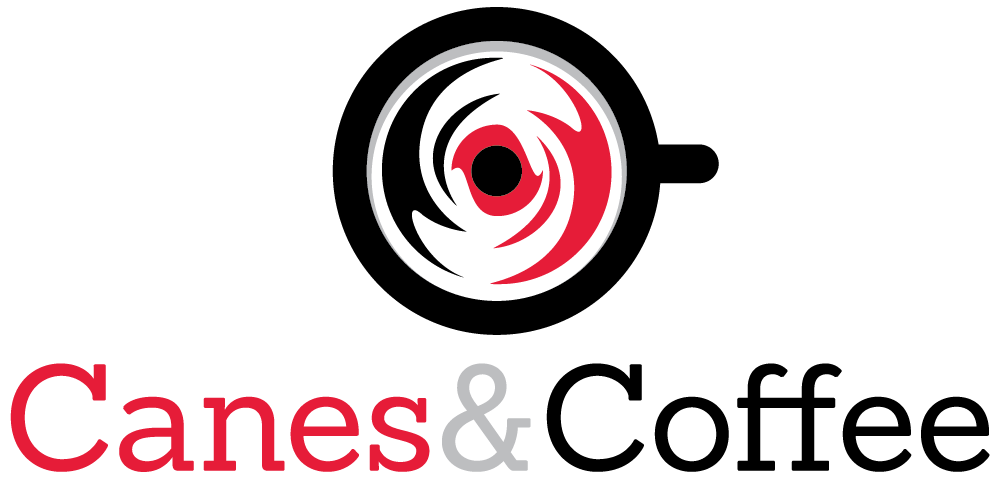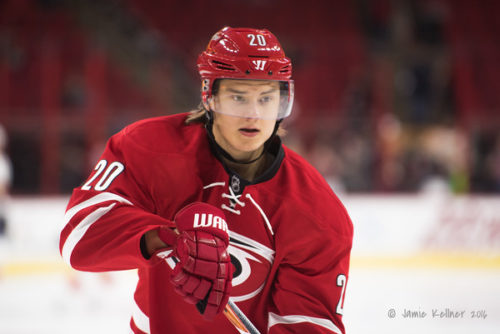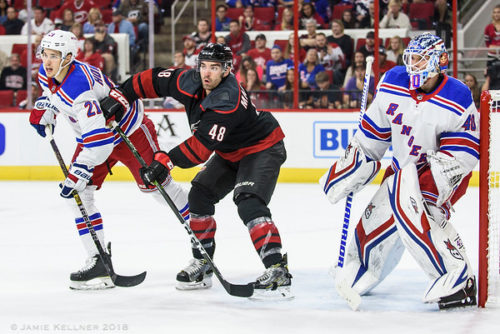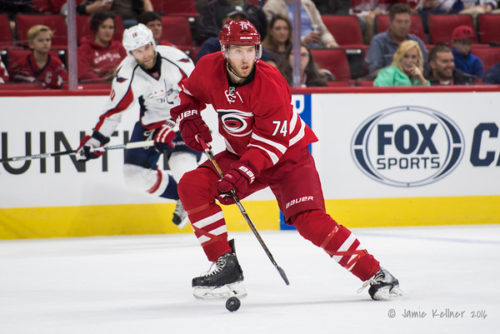Chuck Kaiton wins the Canes award for longevity having been with the Carolina Hurricanes since their inception in the 1997-98 season and winning a tiebreaker with John Forslund by virtue of actually dating all the way back to 1979-80 with the Whalers. He is also noted as a great in broader NHL hockey circles. In 2004, he won the Foster Hewitt Memorial award from the Hockey Hall of Fame making him the first of three Hurricanes in the Hall of Fame. (Ron Francis and Peter Karmanos are the others, and I am not counting Paul Coffey or anyone else whose stint with the Canes was a minor part of his career.)
Across the league, “Chuck with the letter K” is respected and recognized as a great with a unique flair. In the early days of Hurricanes hockey, “Kaiton’s Corner” at the intermission was a favorite with new Hurricanes fans. His correct (though different from how everyone else says it) pronunciations of players’ names and other idiosyncrasies that he sprinkles in his broadcast put his own unique stamp on what it is like to listen to a Hurricanes game.
Past his accolades as a broadcaster, Chuck Kaiton is one of a small team that deserves significant credit for his work as an ambassador for NHL and Hurricanes hockey in North Carolina. In the early years after the move from Hartford, the team’s television slate was much much lighter than the full 82 games covered now. In those days, the primary option for Canes hockey many nights was settling in old school next to a radio to hear Kaiton call the game. As a big part of it from the beginning for many fans, to this day PNC Arena sports many Canes fans at the game watching live but also taking in Kaiton’s call on the radio via headphones. And though I listen to him must less often in this era when the entire schedule is on television, I still strangely feel like I can hear Chuck’s voice on an occasional call when watching a Canes game. Aside from his direct contribution in an ambassador role as the radio voice for the team, that role also extended outside the arena and the radio. At any volume and variety of interactions with fans in the early years when the team was working to build a fan base and community from scratch, Kaiton was an important spokesperson for the team and the game. The way he talked hockey with energy and passion was infectious. And the non-uppity way that he accepted each fan and every question at whatever level they were at created a welcoming environment to attract and onboard new fans. Whether a fan was a transplant who grew up with 40 years of hockey somewhere north or a brand new fan two weeks into trying to understand and appreciate the game, Chuck Kaiton treated them pretty much the same.
It is this underappreciated and unofficial role in the development of the early fan base that may prove to be Chuck Kaiton’s most lasting impact on the Carolina Hurricanes and its community. Combined with his radio broadcasting excellence, it easily puts him in category of Hurricanes hockey greats.



